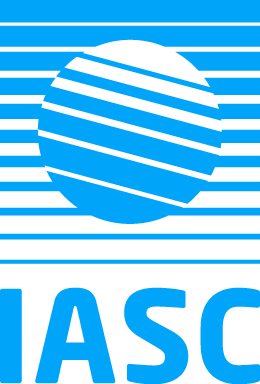Livestreaming
The importance of archives in decolonisation processes in the North and the role of international law

Watch the recording of the seminar here
The power to write one’s own history plays a pivotal role in any attempt to define a polity and claim sovereignty, just as state power is enacted through the production of official records.
And the relationship between sovereignty and historiography is visible in most capitals: the state archives are often placed in close proximity to government and parliamentary buildings. Questions of archival ownership and custody, and indeed what exactly comprises an “archive”, are thus integral to the project of decolonisation.
In this seminar, leading experts in the fields of international law and archival science will discuss the importance of archives to both past and ongoing decolonisation efforts.
How can the law and language of decolonisation and self-determination influence archival theory?
How might archival practices be revised, extended or critiqued to support political, legal, cultural and historiographical decolonisation in the North?
And how are archives interlinked with truth and reconciliation processes?
In this seminar, we are using “the North” to demarcate a geographic region that is not easily characterized according to existing nomenclature – “Nordic”, “West Nordic”, “Arctic”, “Indigenous homeland”, “settler colony” – all imperfectly encapsulate a part of the world with some shared histories and many more complex trajectories between sovereign state and colony. To various extents, colonialism is still powerfully in play in many of these locations.
Across these places, nationhood, sovereignty, governance, archival practice, colonisation, and decolonisation all have unique and generally complex formations. Independence movements and increasing demands for self-determination have been the story of the 20th century and continue through the 21st. Iceland regained sovereignty in 1919 and complete independence from the Kingdom of Denmark in 1944. Greenland, having been integrated into the Kingdom of Denmark in 1953, obtained Home Rule in 1979 and Self-Government in 2009 with a pathway for complete independence. Indigenous Peoples throughout the Arctic have fought and won increasing powers to govern their own affairs through various forms of self-government. Archives have played a crucial role in these processes. The Icelandic claim for the return of state archives and culturally important manuscripts was fundamentally related to the independence movement of the early 20th century. Control over and access to archives regarding colonial histories today play key roles in truth and reconciliation processes as well as demands by Indigenous Peoples to write their own histories and control their own stories.
Raymond Frogner, Head of Archives/Senior Director of Research, National Centre for Truth and Reconciliation, University of Manitoba
Lisa Mullins, Archivist, Inuit Circumpolar Council, Canada
Njörður Sigurðsson, Deputy Director at the National Archives of Iceland. Njörður Sigurðsson has worked in the archival sector for 24 years and been at the National Archives since 2006. He was also sessional lecturer in archival studies at University of Iceland 2012-2022. From 2016 he has chaired International Council on Archives´ (ICA) Expert Group on Shared Archival Heritage (EGSAH).
Bjarni Már Magnússon, Professor, Dean, Faculty of Law, Bifröst University, Iceland
Rachael Lorna Johnstone, Professor of Law, University of Akureyri and Ilisimatusarfik, University of Greenland. She specialises in Polar law: the governance of the Arctic and the Antarctic under international and domestic law. She has published widely on decolonisation under international law, the rights of Indigenous Peoples, and international human rights law.
James Lowry, Associate Professor, Graduate School of Library and Information Studies, City University of New York.
Astrid Nonbo Andersen, Senior Researcher, DIIS
Programme
14.00-14.05 Welcome, Astrid Nonbo Andersen
14.05-14.15 Introduction: Sovereignty, History and Archives, Rachael Lorna Johnstone
14.15-14.45 Keynote, Raymond Frogner
14.45-15.15 Building an archive for Inuit with the ICC Canada Archives, Lisa Mullins
15.15-15.25 Coffee break
15.25-15.55 Did the 1918 Danish – Icelandic Act of Union pave the way for transfers of manuscripts and records to Iceland in 1928? Njörður Sigurðsson & Bjarni Már Magnússon
15.55-16.25 Panel discussion, Moderator James Lowry
16.25-16.30 Closing remarks, Astrid Nonbo Andersen
The seminar was held and recorded on 2 May 2024, 14.00-16.30 in DIIS Auditorium.
Sponsors
The seminar is funded by Nordforsk Exploratory Workshop Grant, “Decolonising Nordic Archives” and IASC Social and Human Working Group, “Decolonising Archives in the Arctic”.


Sign up
DIIS Experts

